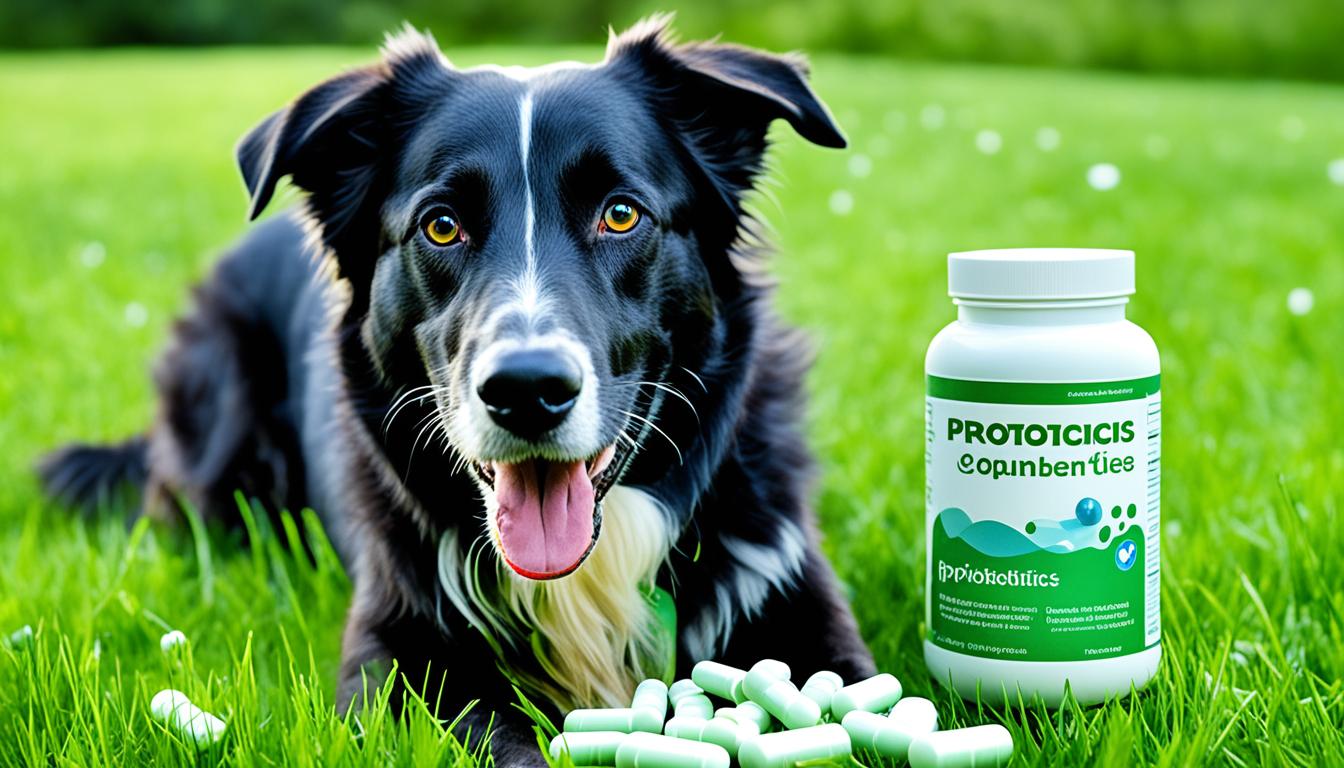Probiotics for Dogs Side Effects
Thinking about giving your dog probiotics? Worried about side effects? We will look into the risks and how probiotics might affect your dog badly. Probiotics are good for your dog’s health, but they can also cause problems sometimes. It’s important to know about these side effects. This way, we can use probiotics safely to improve our dogs’ health.
Key Takeaways
- Probiotics can cause digestive issues like gas, bloating, and diarrhea as the dog’s gut adjusts to the new bacteria.
- Allergic reactions, including skin irritation and respiratory problems, may occur in some dogs.
- Interactions with certain medications or pre-existing conditions can lead to adverse effects.
- Proper dosage and monitoring are crucial when introducing probiotics to your dog.
- Consult with your veterinarian before starting your dog on a probiotic regimen.
Understanding Probiotics and Their Role in Canine Health
Probiotics are live bacteria and yeasts. They are good for our dogs’ digestive health. These helpful microorganisms keep the gut flora balanced. This is key for proper digestion, absorbing nutrients, and having a strong immune system. Probiotics also help with stomach problems like diarrhea and constipation.
What are Probiotics?
Probiotics are small living things that offer many health pluses for dogs. They are often called “good” or “beneficial” germs. They keep the gut’s balance right for a dog’s overall well-being. Probiotics come in different types. You can get them in supplements, treats, and some dog foods.
Benefits of Probiotics for Dogs
Probiotics’ upsides for dogs are widely known. They can make the digestive system stronger, help with eating up nutrients better, and up the immune system. They’re good for the skin too. Probiotics are helpful against tummy problems like diarrhea and constipation. They also aid in handling allergies, itchy skin, and even feeling anxious.
Potential Side Effects of Probiotics for Dogs
Probiotics are usually safe for dogs, but they might cause some minor problems. Your dog could start having gas, bloating, or diarrhea at first. This happens because their gut is getting used to the new good bacteria.
Digestive Issues
Introducing probiotics can lead to some stomach upset in dogs. This means more gas, bloating, or diarrhea for a little while. Luckily, these issues are short-term and go away on their own.
Allergic Reactions
Sometimes, a dog might be allergic to certain probiotics. If your dog gets itchy skin, hives, or has trouble breathing, it could be an allergy. If this happens, stop the probiotics and call the vet right away.
Probiotics for Dogs Side Effects
Most probiotic side effects are not serious, but you should still watch your pet. Start with a small amount and add more slowly. If any problems keep up or worry you, talk to your vet. They can help make sure the probiotics are safe and helpful for your dog.







